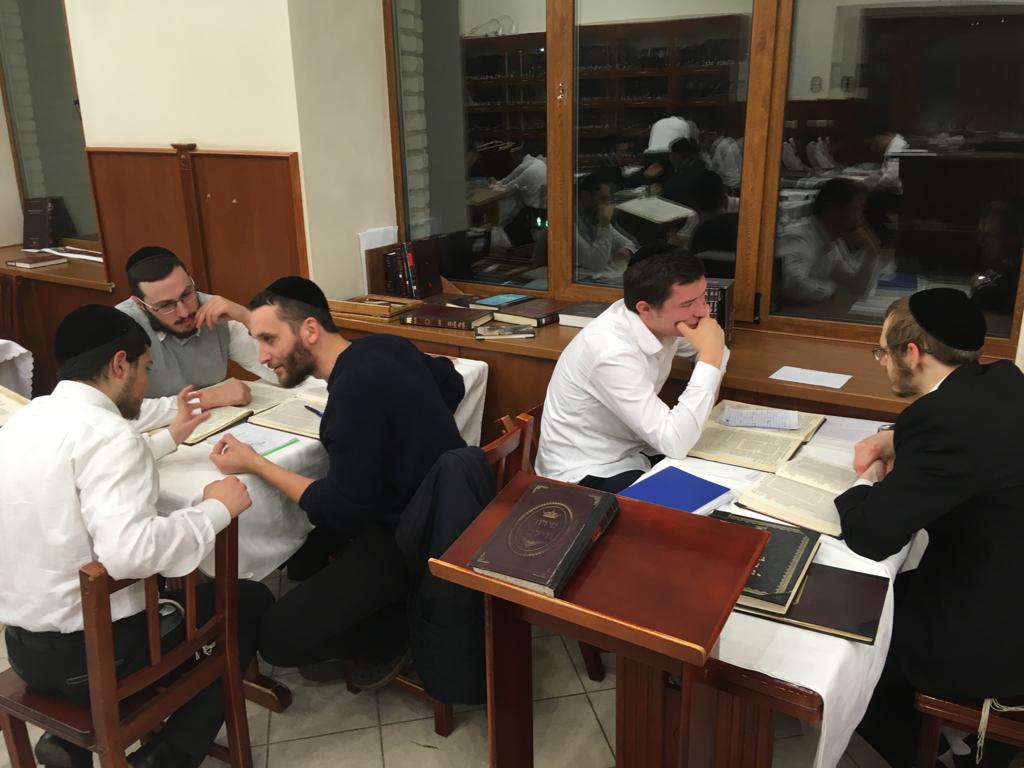Exclusive: An Interview with Rabbi Moshe Lebel, Rosh Yeshiva of Yeshivas Toras Chaim in Moscow
Yeshiva World staff spoke with Rabbi Moshe Lebel to learn more about his unique yeshiva, located in Moscow.
How was the yeshiva founded?
The yeshiva was founded 30 years ago, almost to the day. Russia was just opening its borders during Gorbachev’s Glasnost, and Rav Moshe Soloveitchik of Switzerland, one of the leading Rabbis of Europe at the time, had the idea to open a Makom Torah in Russia.
This was unheard of at the time – it was a very audacious dream, to open a yeshiva in what was a spiritual wasteland for decades. But we actually feel there is a lot of siyata dishmaya here, because this country used to be such a Makom Torah before the war.
What was the process of founding the yeshiva?
The yeshiva was originally started as a kiruv organization, but evolved within a year into a full-fledged yeshiva, completely focused on Torah learning. We’re one of the only real yeshivas in all of Eastern Europe.
I started traveling regularly to Russia to help establish the yeshiva, and spoke only Hebrew at the time. I can no longer say that – although I still give shiur in Hebrew, I can now speak Russian. We now have 60 students who study here full time and another 60 who come visit on weekends and Chagim.
What makes this yeshiva unique?
What sets this yeshiva apart is it’s a ba’al teshuva yeshiva, and yet it feels exactly like a regular yeshiva. Our students come in and start with the basics – Bris Mila and Alef Beis. And two years later they’re attending the best yeshivas in Israel.
I once asked Rav Moshe Soloveitchick on one of his visits what he felt like when he sat in the yeshiva. He said “I’ve been to Brisk, I’ve been to Ponevitz, this doesn’t feel any different. It feels like any other Yeshiva.”
Our typical students come to yeshiva knowing nothing, and within three months are studying Elu Metzios in Hebrew by themselves. That is nothing short of a miracle.
Have other Rabonnim come to visit the school?
Rav Shteineman zatzal, who was very close with Rav Soloveitchick, took over the nesius (became the president) of the yeshiva after Rav Soloveitchick was niftar.
Rav Moshe Shapira used to come to the yeshiva every Pesach, as well as several other times a year to give shiurim. When his talmidim asked him why he was leaving Eretz Yisrael for Pesach, he used to say “There is nowhere else in the world where you can meet a student one year and be mekayim the mitzvah of vehigadeta lebincha by teaching him about yetzias metzrayim, and the following year you can be answering his questions o Rabbi Akiva Eger.”
Where do the talmidim go after they graduate?
Many of them go to yeshiva in Israel, and following that settle down in Israel and the US, in places like Lakewood and Flatbush. Others return to Moscow and establish families there – we have a kollel with 18 yungerleit in Moscow, which forms a Torah center for over 100 Charedi families in the city.
Many of our graduates go on to assume positions of Rabbonus and Harbatzas Torah in Russia. Most of the communities here, around 25 in total, are led by graduates of the Yeshiva. One of our graduates and staff members at the Yeshiva, Rabbi Pinchos Shwalb is the chairman of The Congress of the Jewish Religious Organizations and Associations in Russia.
But it doesn’t end there. Talmidim are teaching Torah in Germany, Eretz Yisroel, Lakewood. It’s amazing where they end up after starting out completely Torah illiterate in secular Russia. It’s a testament to the power of Torah.
How many talmidim have graduated the yeshiva?
It is hard to tell an exact number, but I think it’s been well over 3000 people bli ayn hara. We have helped many of them get married and establish proper Jewish homes. Many our graduates have grandchildren already. They are native Israelis or Americans, learning in religious mosdos. And without Toras Chaim, I doubt they would even be Jewish…
Impressive! Thank you so much for an inspiring conversation.
It’s been a pleasure, thank you!
TO LEARN MORE CLICK HERE






































